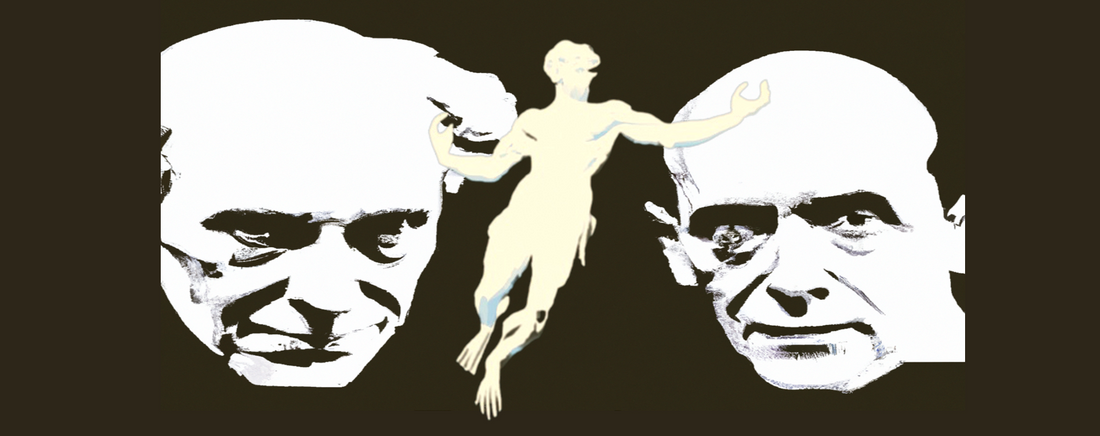Kirstie Rodrigues
Student writer
Christopher Nolan’s biopic of the “father of the atomic bomb”, J Robert Oppenheimer, explores ethical conflicts within an attempt to reach scientific victory. Over two centuries before the release of Oppenheimer, Mary Shelley’s character Victor Frankenstein also suffers due to his excessive ambition and negligence of his creation. However, while Frankenstein emphasises the importance of taking responsibility for your actions and the subsequent consequences, Oppenheimer focuses on the ambiguity of mankind and our ability to both achieve greatness and cause mass destruction. Still, both depictions of the dark potential of science force the audience to question the morality of their attempts to create a legacy of scientific significance.
Mary Shelley’s Gothic novel Frankenstein is a cautionary tale of an obsessive pursuit of usurping God and the dangers of scientific advancements. Written during a time of rapid scientific discovery, the novel follows Shelley’s eponymous protagonist during his creation of a monster using “bones from charnel houses”, the abandonment of his Creature and his struggle of attaining revenge. Frankenstein embodies the uncontrolled desire to obtain scientific knowledge while ignoring the disastrous societal consequences. His ignorance of the dangerous and murderous potential of his scientific creation leads to the death of his loved ones and the transformation of his promising and joyful life into one of turmoil and chaos. Shelley uses Frankenstein’s uncontrolled ambition to highlight the threat science poses on society, if regarded as higher than morality and if used to usurp God and nature. The sublime natural world is presented as powerful and flawless by Romantic writers, including Shelley, to emphasise the imperfections and triviality of humanity. Frankenstein is often dwarfed by the natural power of the “lightning playing on the summit of Mont Blanc” and “vivid flashes of lightning” implying that nature will continuously maintain its power over mankind. Shelley frequently emphasises the omnipotence of the sublime nature to criticise the Industrial Revolution (1760-1840) and the rapid growth of scientific and technological discoveries and innovations. Throughout each chapter, it becomes clear that Victor’s fixation on defeating his Creation never disappears and even on his death bed he refuses to take responsibility and attempts to encourage Robert Walton (a scientist exploring the Arctic with hopes of achieving similar scientific greatness to Frankenstein) to continue his risky expedition despite the reluctance of his crew. Shelley could be implying that Frankenstein’s pursuit of science consumed his good sense and made him lose the ability to accept responsibility for the sufferings of his Creature and the murders of all those close to him. This makes a clear distinction between Victor Frankenstein and J. Robert Oppenheimer as in the biopic it is clear that his guilt for the atomic bombing of Hiroshima and Nagasaki haunted him.
‘Oppenheimer’ showcases mankind’s ability for annihilation and explores the ethical conscience by presenting the life of J. Robert Oppenheimer, his journey of creating the atomic bomb and the aftermath on his mental health and politics. Even though both scientists’ (Frankenstein and Oppenheimer) creations destroyed lives, Oppenheimer and the scientists of the Manhattan Project understood to some extent the destructive possibilities of the atomic bomb. Their final decision considered the morality of the weapon and the opportunity of ending WWII, potentially saving millions of lives and making their actions less selfish than Victor’s. Unlike Victor, the scientists had no control over their creation as the politicians decided where and when to drop the bomb. They had no foresight of the Arms Race during the Cold War and the nuclear tensions caused by the increasing possession of nuclear weapons and their destructive power. The movie was based on “American Prometheus: The Triumph and Tragedy of J. Robert Oppenheimer”, the 2005 biography by Kai Bird and Martin J. Sherwin. Oppenheimer realises his creation could end the world in his final scene with Einstein, stating that “I have become death, destroyer of worlds”, and suggesting that he knows that his atomic weapon could lead to the destruction of the world. He takes responsibility for his creation and the destructive powers it possesses and is continuously tormented by the lives his weapon took. ‘Oppenheimer’ showcases mankind’s ability for annihilation and explores the ethical dilemmas of the danger of his creation and his dedication to his country while forcing the audience to question the consequences and morality of science.
In many ways Frankenstein and Oppenheimer can be compared to Prometheus, a titan who stole fire from the Gods and was publicly punished for his actions. Frankenstein attempted to usurp God by creating a living being and Oppenheimer created a weapon that could kill thousands at once. Both were chastised for their actions: Frankenstein chased his Creature around Europe and died during the pursuit, and Oppenheimer was constantly troubled by his creations, power, and his communist ties during the Red Scare. Even though both scientists faced repercussions, they are differentiated by the fact that Frankenstein’s punishment was induced due to his refusal to accept responsibility and Oppenheimer’s was due to the political climate at the time. Despite this, Shelley’s key message about the dangers of scientific advancements is still very much relevant today.
